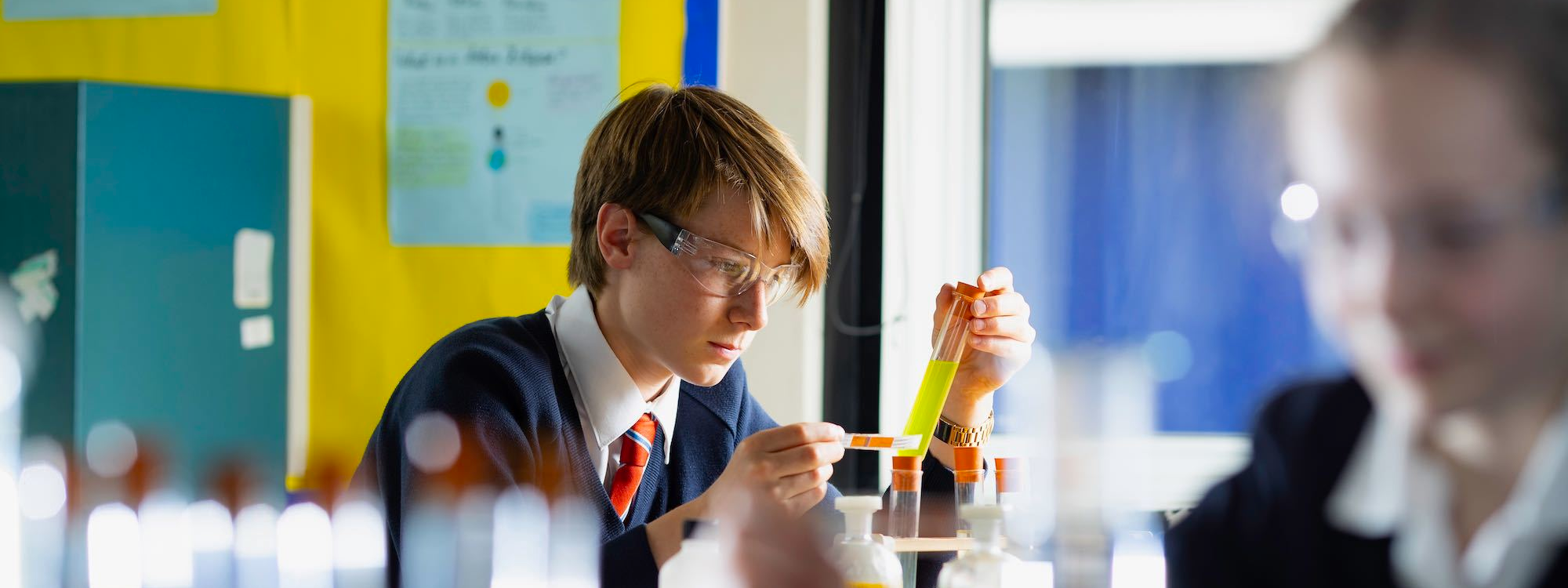- Home
- Learning With Us
- Extracurricular
- STEM
STEM
Court Moor has always been active in supporting the technical strengths of our students. STEM is a nationwide initiative to get more young people into Science, Technology, Engineering and Mathematics. To support this and recognising the importance of these fields to our students, parents and the wider community, Court Moor has a specialist STEM co-ordinator, Ms Laird, in order to maximise the opportunities available for our students and add in some joined up thinking.
At its core, STEM is a teaching philosophy that integrates all four disciplines together into a single, cross-disciplinary program which offers instruction in real-world (as opposed to purely academic) applications and teaching methods.
So what does this mean for students at Court Moor?
Our GCSE results for Science (including the Separate Sciences), Design Technology, Engineering and Maths are excellent; each year our students perform significantly above the national picture for this suite of subjects and follow on to study at post 16 and in Higher Education settings in these fields.
In keeping with the Court Moor philosophy of offering a wider variety of curriculum experiences than is seen in many schools, we offer GCSE Astronomy and the new ‘Global Studies’ Year 8 course included units of work prepared by the Science teachers on:
- global health
- the global environment
- beyond the globe
- natural science
We also offer a selection of extracurricular clubs and opportunities for students (and teachers) to widen and develop their interests and experiences of STEM. Here is a flavour of what we have offered during the last academic year:
This year the science department has been offering a fortnightly science club with over 30 members across four year groups. This is the third year of a three-year rolling programme which means students are coming back year after year, as we do something different every time, exploring the world of science. This year has seen us extract medicine from plants and make rocket fuel, among many other activities.
In May a group of year 9 girls were taken on a STEM For Girls day run by Fluor to boost the confidence of our girls in STEM subjects and encourage them to think about STEM-based careers. They meet role models and other like-minded students as well as take part in challenges. We see the evidence of this confidence carried through the rest of their time at school.
Sadly our Science Live trip in March was cancelled by the venue, but this trip takes 108 students to learn from some of the best minds in British science. This is annual event and next year's event is already on our calendar.
186 Year 7s visited the Science Centre and Planetarium in Winchester where they took part in rocket building workshop, explored the activities there and had a guided presentation in the planetarium. The staff at the center commented on how wonderful our students were: “We’ve never had a Key Stage 3 group so attentive and respectful”.
June and July saw the Key Stage 3 students embark on a science project as their summer term homework. Staff are always amazed by the quality of the entries. Two winners from each group go forward to our science fair in July where staff, students and members of the public are invited in to view and judge our finalists before we find our overall winner.
In March a team of our Year 10 GCSE Engineering students went to Fluor in Farnborough to compete in their annual Engineering Challenge, where students had three hours to design and build a ball launcher and catcher, with the prize going to the team that successfully threw the furthest whilst still being accurate enough to catch the ball. Our intrepid team certainly produced the most powerful catching mechanism, but were pipped to the first prize by the very last team to compete.
In May, some of our Year 10 GCSE Engineering students took part in the BAE Systems Engineering Challenge 2024. Two teams from Court Moor joined schools from around the area at the Farnborough International Conference Centre, where they designed, built and tested a vehicle for troops to use in reconnaissance missions. The vehicle had to be able to handle rough terrain in wooded and mountainous areas. They then presented to a ‘Dragons’ Den’ panel and a separate judging panel to explain their design choices; the vehicles then had to complete a test track with various terrains and obstacles. Both teams produced functioning vehicles that fulfilled the brief, but we were very excited when we realised that one of the teams had won the overall top prize!

